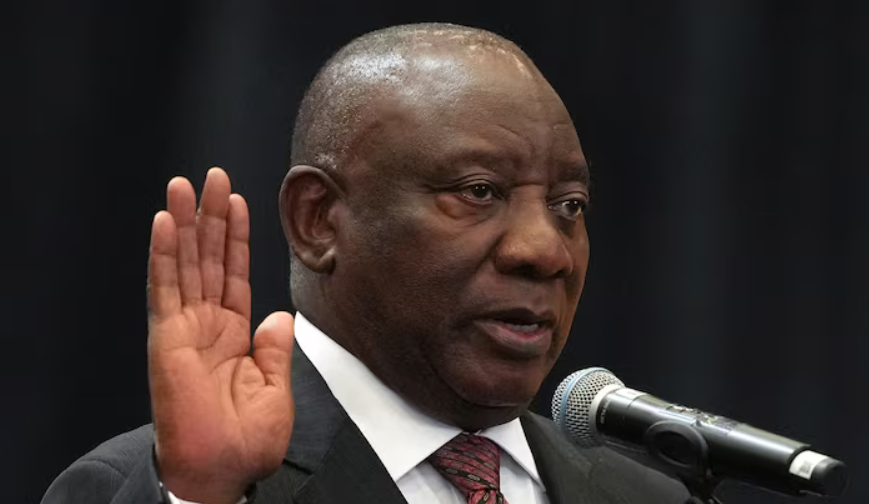During the most recent parliamentary session after the last national election, a member of President Cyril Ramaphosa’s own African National Congress (ANC) party proposed his re-election, marking a major political development in South Africa. A pivotal vote to choose the country’s leadership will soon be underway, thanks to this nomination.
Economic Freedom Fighters (EFF) leader and opposition figure Julius Malema has also received presidential nominations, suggesting that the upcoming election process will be highly competitive.
The Democratic Alliance (DA) has promised to vote for Ramaphosa again as part of an agreement with the African National Congress (ANC) to form a unity government, so his re-election looks very certain. Out of the 400 members in the newly formed National Assembly, this alliance possesses 246 seats in total.
South Africa’s political landscape is at a crossroads as candidates for president are nominated, signaling the possibility of new leadership as well as changes in policy and governance goals. After Jacob Zuma resigned in 2018, Cyril Ramaphosa took office and immediately set out to repair the country’s corrupt institutions and revive its economy.
South Africa’s ruling party, the ANC, has been dealing with issues including economic inequality, unemployment, and the provision of public services ever since apartheid ended. The electorate is looking for strong leadership and efficient administration to address these critical challenges in the approaching election.
Within the democratic structure of the country, the nomination of Malema exemplifies the increasing power of alternative political platforms and voices of dissent. In contrast to the policies of the ANC-led government, the EFF offers a populist platform that advocates for economic redistribution.
Aiming to foster political stability and consensus-building in a varied and frequently combative political scene, the ANC and DA have formed a coalition. The goal of this collaborative strategy is to promote inclusive development by utilizing the strengths of all stakeholders to tackle pressing national issues.
The future of South Africa’s economy, society, and international position are all profoundly affected by the results of the presidential election. Immediate issues that the newly elected leader will have to deal with include recovering from the COVID-19 outbreak, unemployment, and trying to entice investors and boost growth.
As South Africa moves through this pivotal point in its political history, the democratic values and significance of voting processes are highlighted in the parliamentary sessions. A wide range of political beliefs and connections are reflected in the electorate, which is crucial in setting the agenda and course of government.
Finally, the re-election nomination of President Ramaphosa and Julius Malema’s candidacy are examples of the competitive, collaborative, and leadership-focused political landscape that is currently shaping our nation. The next presidential candidate will be chosen by the next vote, which will also chart the future of South Africa in terms of equality, sustainable growth, and prosperity.



















